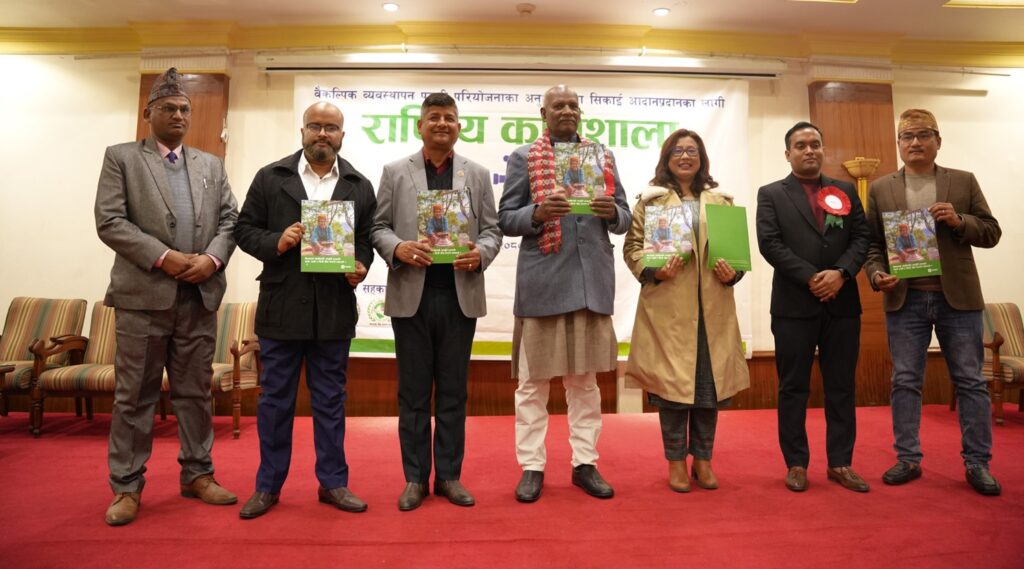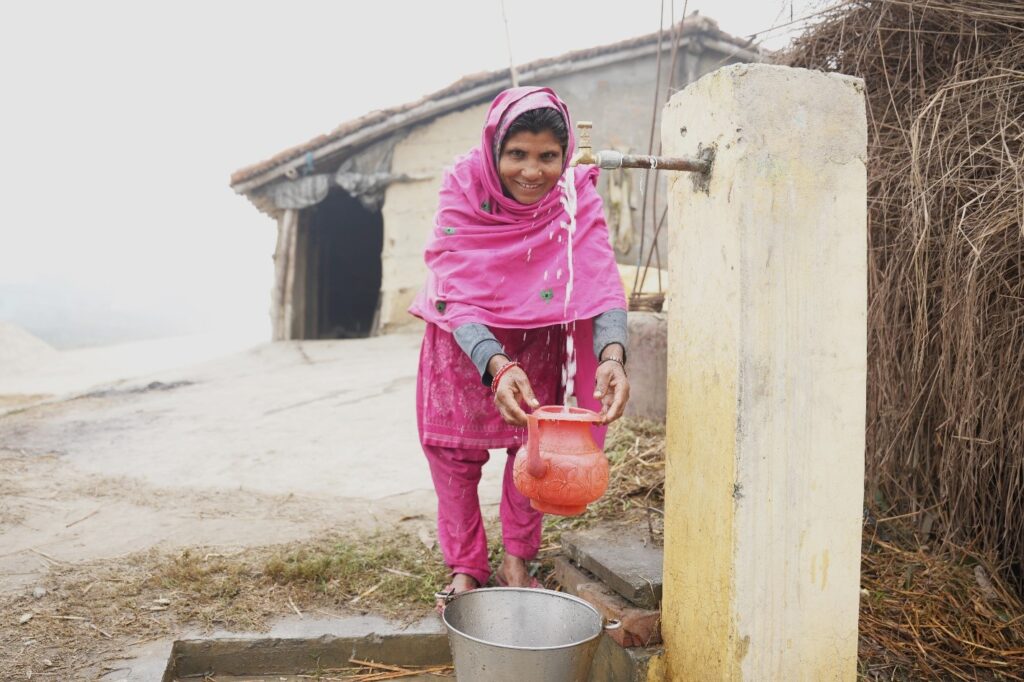In December, Nepal’s then Minister of Water Supply, Mahendra Raya Yadav, announced the government’s full support for managing water supply systems in rural Nepal through the management board model practiced by Oxfam.

Nepal’s former Water Supply Minister (fourth from left), launching the public event ‘Water Supply Services in Nepal: how to build better, more reliable services’. Photo: Susma Panta, Oxfam Nepal
The Minister announced the support whilst attending the launch of the guide that lays out Oxfam’s Alternative Management Model, how to replicate it and what learnings we have gained from the project.

Nepal’s former Water Supply Minister Raya Yadav in attendance at the launch on December 19, 2023. Photo: Susma Panta, Oxfam Nepal
Alternative Management Model (AMM) in operation
A water Supply Management Board, including members of the local community, that is fully capable of managing the rural/municipality’s water supply systems and is recognized by the government, is at the heart of this Alternative Management Model project.
Oxfam in Nepal and its partners FOCUS Nepal, RDC Nepal and BWSN with support from the Grundfos Foundation, have established the Water Supply Management Board in two rural municipalities in Dhading (hilly region) and two municipalities in Madhesh Pradesh (Terai flatlands). All four Water Supply Management Boards are now in operation.
- The booklet is available for download from Oxfam Nepal’s website (in Nepali)
From project to national advisory
Through the design and implementation of this project, the Grundfos Foundation, FOCUS Nepal, RDC Nepal, BWSN and Oxfam in Nepal have together contributed to improving access to safe water in rural Nepal. Oxfam in Nepal has been entrusted by the Department of Water Supply to coordinate with all stakeholders to update these important guidelines.
Oxfam and Grundfos Foundation are now working on plans as to how they can utilize their expertise and co-contribute to update the National Design Guidelines for drinking water supply. For the time being, the project will continue to provide technical and financial support to the 4 boards with this being phased out over the next 4 – 5 years as the boards become fully self sustaining.

A woman from Rautahat, with a functional water supply tap (part of the AMM project) in her yard. Most of the population in Rautahat have no choice but to drink tube well water, often contaminated with iron and arsenic. Photo: Susma Panta, Oxfam Nepal.

